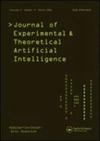基于最优平衡熵采样的不平衡问题零初始化无监督主动学习
IF 1.7
4区 计算机科学
Q3 COMPUTER SCIENCE, ARTIFICIAL INTELLIGENCE
Journal of Experimental & Theoretical Artificial Intelligence
Pub Date : 2021-05-24
DOI:10.1080/0952813X.2021.1924871
引用次数: 0
摘要
考虑到为机器学习任务收集标记训练数据的挑战,主动学习已经变得流行起来。本文主要关注无监督主动学习的开始,其中根本没有标记数据。这种零初始化无监督主动学习的目的是选择最具信息量的例子(即使是从不平衡的数据集中)进行手动标记。我们提出的基于最优平衡熵采样(OBEBS)的选择策略在每一步都达到一个平衡的训练集,以避免不平衡问题。本文还提出并证明了选择策略最优解的两个定理。在主动学习开始时,没有足够的信息用于监督机器学习方法,因此我们的选择策略是基于无监督学习(聚类)。项目的聚类隶属似然对于算法连接聚类和类,即找到它们之间的分配至关重要。针对最优分配,采用了匈牙利算法,并开发了obbs方法的单、多、自适应分配变体。基于手写数字生成和真实图像数据集的实验结果表明,我们的方法优于目前最先进的方法。本文章由计算机程序翻译,如有差异,请以英文原文为准。
Zero Initialised Unsupervised Active Learning by Optimally Balanced Entropy-Based Sampling for Imbalanced Problems
ABSTRACT Given the challenge of gathering labelled training data for machine learning tasks, active learning has become popular. This paper focuses on the beginning of unsupervised active learning, where there are no labelled data at all. The aim of this zero initialised unsupervised active learning is to select the most informative examples – even from an imbalanced dataset – to be labelled manually. Our solution with proposed selection strategy, called Optimally Balanced Entropy-Based Sampling (OBEBS) reaches a balanced training set at each step to avoid imbalanced problems. Two theorems of the optimal solution for selection strategy are also presented and proved in the paper. At the beginning of the active learning, there is not enough information for supervised machine learning method, thus our selection strategy is based on unsupervised learning (clustering). The cluster membership likelihoods of the items are essential for the algorithm to connect the clusters and the classes, i.e., to find assignment between them. For the best assignment, the Hungarian algorithm is used, and single, multi, and adaptive assignment variants of OBEBS method are developed. Based on generated and real images datasets of handwritten digits, the experimental results show that our method surpasses the state-of-the-art methods.
求助全文
通过发布文献求助,成功后即可免费获取论文全文。
去求助
来源期刊
CiteScore
6.10
自引率
4.50%
发文量
89
审稿时长
>12 weeks
期刊介绍:
Journal of Experimental & Theoretical Artificial Intelligence (JETAI) is a world leading journal dedicated to publishing high quality, rigorously reviewed, original papers in artificial intelligence (AI) research.
The journal features work in all subfields of AI research and accepts both theoretical and applied research. Topics covered include, but are not limited to, the following:
• cognitive science
• games
• learning
• knowledge representation
• memory and neural system modelling
• perception
• problem-solving

 求助内容:
求助内容: 应助结果提醒方式:
应助结果提醒方式:


